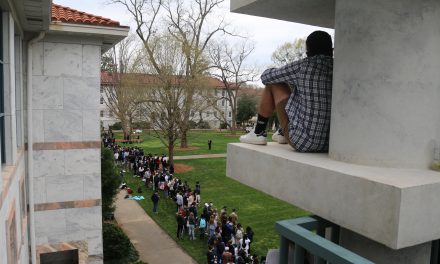Emory University has received $518.6 million for research grants from external federal agencies in the fiscal year 2012.
Because of the increase in faculty grant applicants and productivity amongst Emory faculty, this is the third consecutive year that Emory has received over half a billion dollars in external funding.
This pattern in substantial external funding partially has to do with the increasing number of faculty members at Emory who apply for grants, and also the increased productivity of Emory faculty.
Because most of Emory’s research is dedicated to studying issues in the biomedical and health areas, most of Emory’s grants are for research about cancer, AIDS and other diseases.
The Woodruff Health Sciences Center – which includes the School of Medicine, the Nell Hodgson Woodruff School of Nursing, the Rollins School of Public Health, the Yerkes National Primate Research Center, the Winship Cancer Institute and Emory Healthcare – received the majority of the funding.
Annually, the most funding is directed towards Emory’s health and science programs and specifically to the School of Medicine. This year the School of Medicine received $331 million and the Rollins School of Public Health received about $75 million.
Faculty members at the top of their field from universities across the U.S. apply for money from organizations like the National Institute of Health (NIH), the Center for Disease Control (CDC) and the Gates Foundation. Thus, most of the research projects are relevant and critical to the interests of the federal agencies.
According to James W. Curran, who serves as the dean of the Rollins School of Public Health, the grant application process is highly competitive – about 10 to 20 percent of grants are accepted.
“[The faculty] have to be in the top ten in the country,” Curran said. “They’re at the cutting edge of their research.”
Federal agencies provide funding through well-defined agreements with little flexibility – most projects are in place before the money is received and are aimed to reduce disease across the world.
“[The goals range] from studies on air pollution in the local Atlanta community to the control of infectious diseases and chronic conditions in Africa, China and India,” Rollins School of Public Health Associate Dean for Research Gary W. Miller said.
Increased funding creates more research opportunities for students.
This is due to the fact that many of the research projects on campus require student help and are designed specifically to support graduate students.
Miller said that these projects provide thesis and dissertation content in addition to a significant amount of hourly work for students.
“The funding comes from the efforts of hundreds of faculty, staff and students,” Miller said. “They write proposals to support their research. The administration is here to help facilitate these efforts, not dictate it.”
– By Rupsha Basu
The Emory Wheel was founded in 1919 and is currently the only independent, student-run newspaper of Emory University. The Wheel publishes weekly on Wednesdays during the academic year, except during University holidays and scheduled publication intermissions.
The Wheel is financially and editorially independent from the University. All of its content is generated by the Wheel’s more than 100 student staff members and contributing writers, and its printing costs are covered by profits from self-generated advertising sales.




